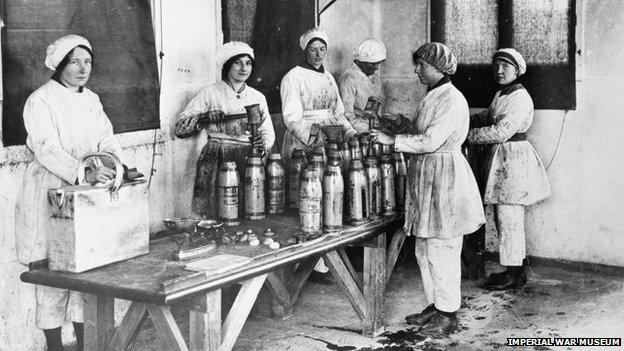World War One and David Lloyd George's role in winning it
- Published
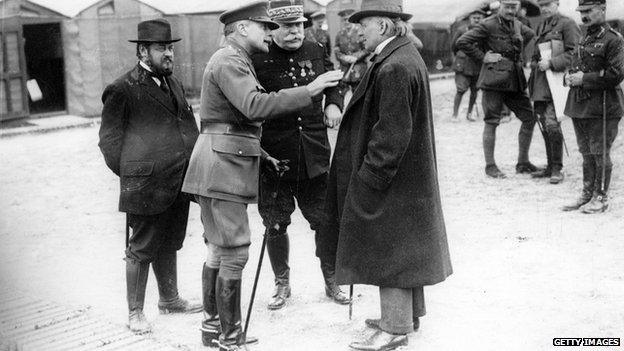
David Lloyd George with British and French army commanders Sir Douglas Haig and General Joseph Joffre
It was 1917 when David Lloyd George famously told an audience: "Germany expected to find a lamb and found a lion."
The MP for Caernarfon Boroughs had already served as chancellor, minister of munitions and secretary of state for war during World War One.
It was in his role as prime minister that he saw the tide of war turning in favour of the Allies.
But despite his roles the man at the helm of British politics was once an opponent of war.
He had argued vehemently against the Second Boer War at the turn of the 20th Century.
Later, he had pledged his support to reduce Britain's expenditure on armaments, describing the build-up as reckless.
So what swayed his opinion? Some believe Lloyd George's change of heart related to his love of Wales.
"When Germany declared war, Lloyd George wasn't sure which way to go," said Emrys Williams from the Lloyd George Memorial Museum at Criccieth, Gwynedd.
"But as soon as Germany started violating the borders and the small country of Belgium, he was dedicated to winning the war.
"He was from Wales, another small country, and he could relate to the plight of the Belgians who faced this aggressor."
Lloyd George was perceptive, recognising the mood of the public and allowing that to feed into his politics.
But regardless of what swayed his opinion to support the war, the policies he pushed in his various roles in government impacted on the shape of the conflict.

DAVID LLOYD GEORGE FACTS
Lloyd George remained chancellor of the exchequer through the early years of World War One
In 1915 he was appointed minister of munitions in the wartime coalition government
In July 1916 he became secretary of state for war
In December 1916, he became prime minister
Lloyd George's achievements in the last two years of the war included persuading the Royal Navy to introduce a convoy system
SOURCE: BBC HISTORY

Emrys Williams said as minister of munitions, Lloyd George had realised "very quickly the British Army was unprepared and he set about increasing the number of machine guns per battalion".
"The decorated Lord Kitchener who was secretary of state thought it could be won with the Cavalry on horses," said Mr Williams.
Liberal MP David Lloyd George, was at the heart of government at Westminster during the first two years of the conflict
"But this was a new kind of war and Lloyd George was one of the first to realise it needed armament."
To facilitate this he set up ammunition factories across Britain to supply the constant demand from the front line and he solved the labour shortage with a novel approach.
"Through employing women at the factories he changed the whole format of British society," said Mr Williams.
Between 1914 and 1918 nearly a million of the so-called munitionettes were employed in these factories.
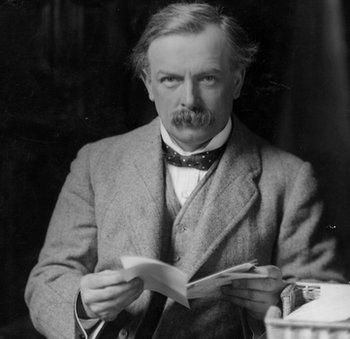
Lloyd George had a "down-to-earth understanding of people", according to Lloyd George Society president Lord Thomas
Another quirk which set Lloyd George apart from other ministers was his readiness to use the informed advice available to him from men who had the experience he lacked.
He acted upon this advice as minister of munitions and later as prime minister when he formed a small cohort of advisors which became known as the Garden Suburb.
Following Lord Kitchener's death in 1916, Lloyd George succeeded him.
Just a few weeks later Britain entered the most traumatic offensive of the conflict, the Battle of the Somme where around a million men were killed or wounded.
Earlier that summer the newly appointed secretary of state travelled to Aberystwyth for the annual Welsh cultural festival, the National Eisteddfod.
In a stirring speech he dismissed calls for the event to be cancelled telling those at the eisteddfod that the honour of Britain was not dead, nor was her might broken.
Within the space of a few months Lloyd George rose to the top of the political pole, becoming prime minister.
Emrys Williams said his decision to appoint a war cabinet on his promotion to PM helped swing the pendulum of the conflict towards the Allies.
"He created a centralised government machine which unified command on the Western front, the war cabinet helped him make decisive decisions," he said.
Lloyd George also persuaded the Royal Navy to introduce a convoy system and it's argued these changes were among a combination of factors which helped end the conflict.
Lloyd George Society president Lord Thomas of Gresford also argues the character of the then prime minister was an important factor.
"He contributed a down-to-earth understanding of the way people lived, worked and fought," he said.
"He brought to his cabinet a dynamism, a sympathy and an understanding. It was that which led him to win the war and to go on to Versailles and negotiate the peace."
- Published7 August 2014
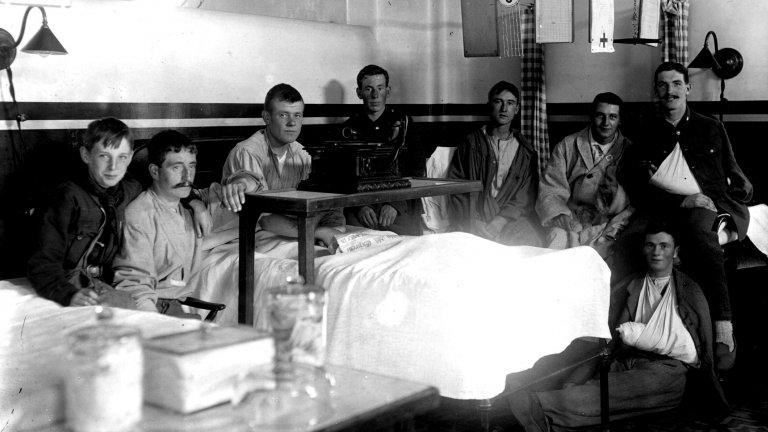
- Published5 June 2014
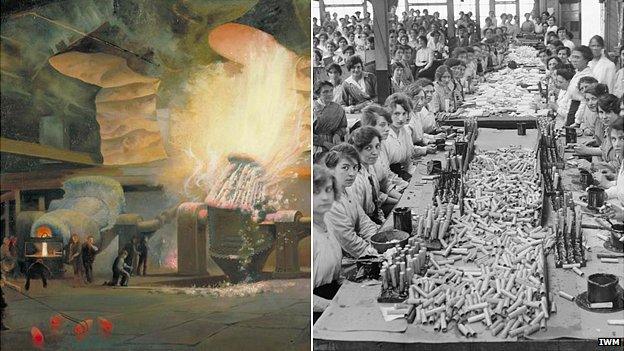
- Published13 June 2014
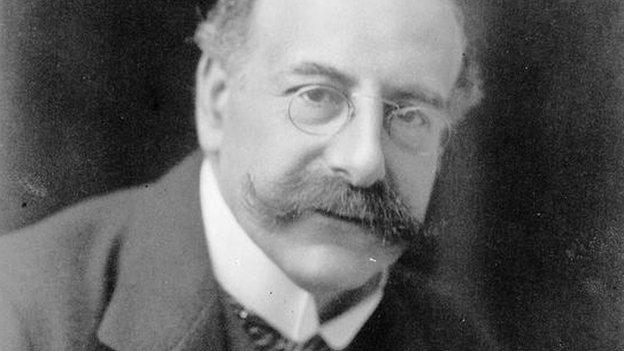
- Published2 June 2014
